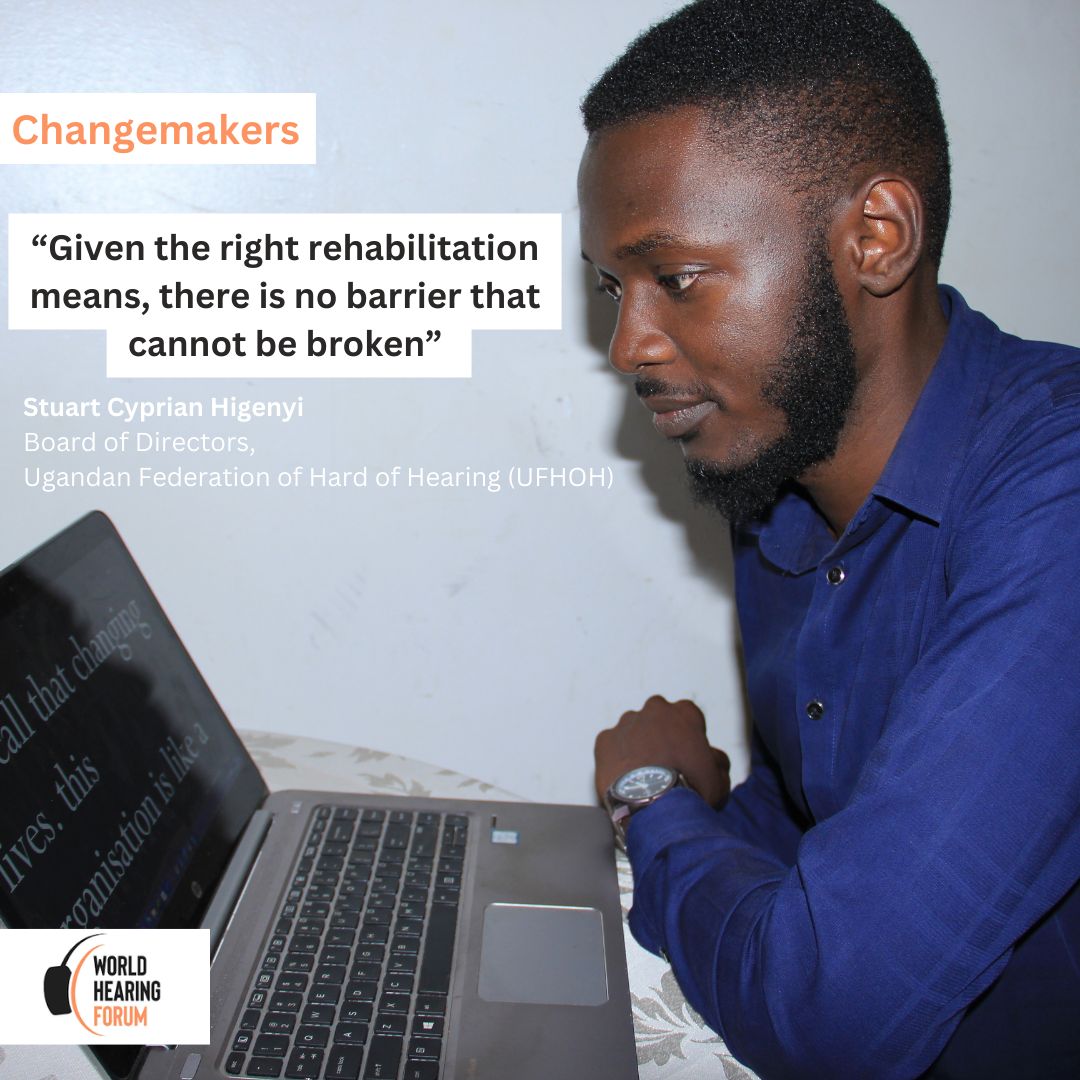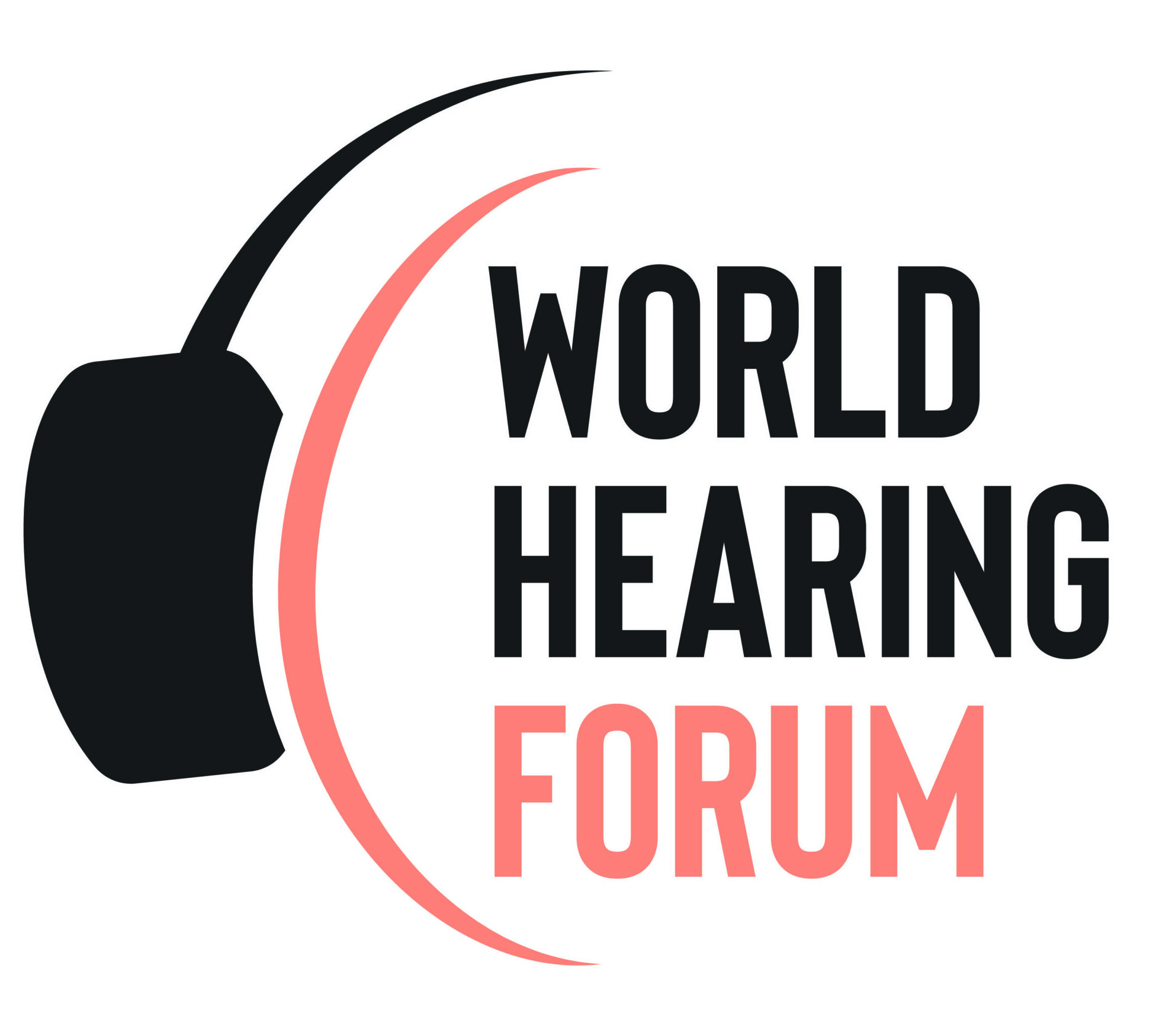
Stuart Cyprian Higenyi Board of Directors at the Uganda Federation of Hard of Hearing (UFHOH) Uganda
“It takes time to recognize that you have hearing loss, both by your self and the community around you. My life story is not different, my name is Stuart Cyprian Higenyi, a hard of hearing youth leader and the Chairperson, Board of Directors at the Uganda Federation of Hard of Hearing (UFHOH).”
“There is no warning when hearing loss hits you. The reality of my hearing loss came to light at the age of 14 years while in my secondary school. I had finished my previous year with no problem, Christmas festival is always fun but that turned out to be a nightmare for me that year as I lost hearing in both my ears.”
“Communicating with friends and family became a problem and holding a conversation became challenging. Inwardly I felt a lot of sorrow while struggling to hear but there was nothing I could do. Witchcraft, ear rupture by careless cleaning, exposure to loud noise, and other speculations were made for the cause of my hearing loss but I honestly had no idea of the cause, up to now I don’t know”.
“Back at school, I was scared to let anyone know of my hearing loss for fear of being laughed at. I ended up falling into trouble for not following rules (spoken words) and having wrong notes (dictated). Hearing loss had started to affect my academic performance and my self-esteem” .
“ As a result, I became depressed and a social misfit. I prayed daily but with no result. I visited an Ear Nose and Throat (ENT) specialist at Mulago National Referral Hospital who removed some wax from my ears but that didn`t help my hearing. Finally, the audiologist advised me to use hearings aids, shattering my hopes of a normal life ”
“It dawned on me that I had to live with hearing loss for the rest of my life. But i needed a survival strategy and lip reading was the most viable survival means for me. I was able to inform my teachers and fellow students of my hearing loss, which was a radical step in helping me with communication. Lip reading and written communication were my supports which eased my social interactions and learning. As a result, I graduated from Makerere University Kampala with a bachelors’ degree in Industrial Chemistry.”
“However, attending seminars and training posed a problem as the setting did not favor lip reading and asking fellow participants to transcribe for me was inconvenient. I had to deal with the challenges but later I linked up with the Uganda Federation of the Hard of Hearing, which advocated for the Fundamental Human Rights of hard of hearing persons in Uganda and prevention of hearing loss.”
“The organization enabled me to meet people with hearing loss of all ages, with different life experiences, I felt at home meeting and interacting with fellow hard of hearing members especially the youth with whom we shared similar experiences and challenges, a bond was established and we joined the advocacy journey for inclusion of hard of hearing persons in mainstream development. With this network I developed self-esteem and acquired new skills through the capacity building programs at the UFHOH supported by Disability Rights Fund (DRF).”
“Uganda Federation of the Hard of hearing advocates for captioning and my interaction with the organization paid off when I managed to get a captioner for the first time. I felt included being on the same page as everyone. It was thrilling for the first time I used manual captioning to participate in a meeting. At first, I observed captions and how they were helping others to participate and contribute to discussions and later I became an active contributor too!”
“With time and modernization, I came to know of transcribing apps and live captioning which have made communication simple. I can actively participate in meetings and dialogues, have a conversation via a phone call, use WhatsApp voice notes, enjoy movies all thanks to captioning and subtitles. Equipped with lip reading skills, access to captioners and availability of transcribing applications, communication and information accessibility is simplified.”
“Different settings call for different rehabilitation interventions, I believe that given the right rehabilitation means, there is no barrier to communication that cannot be broken.”
